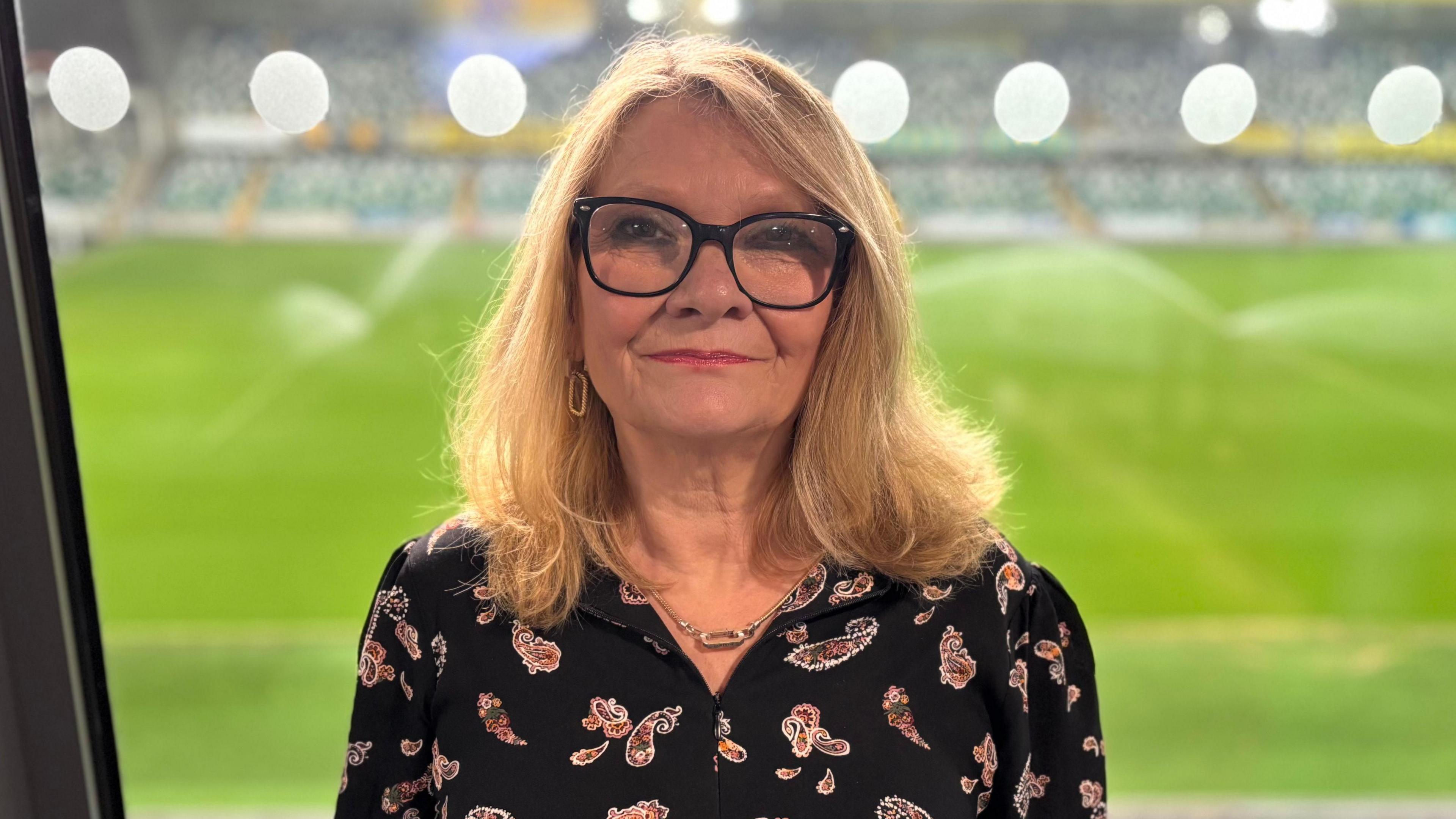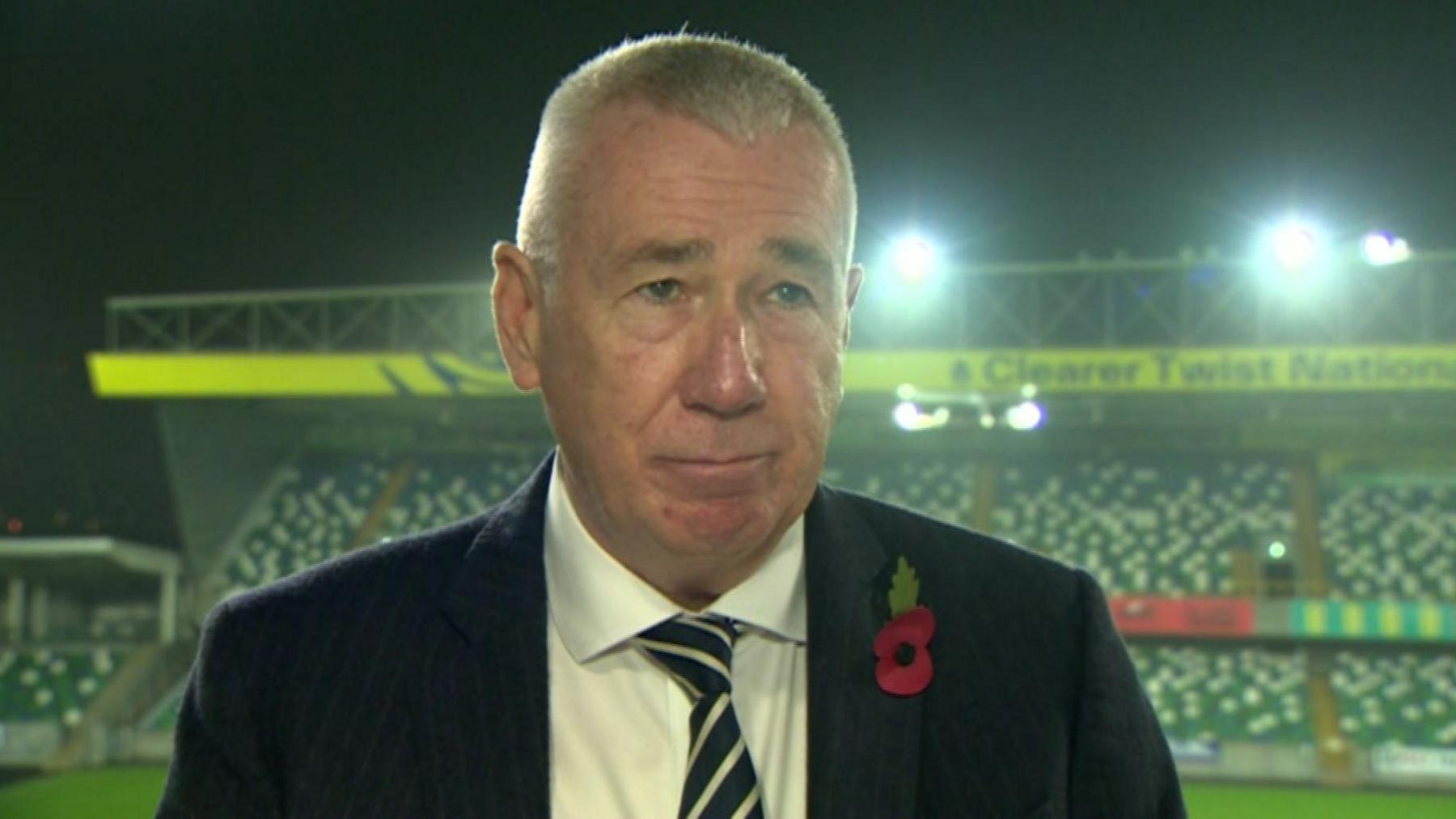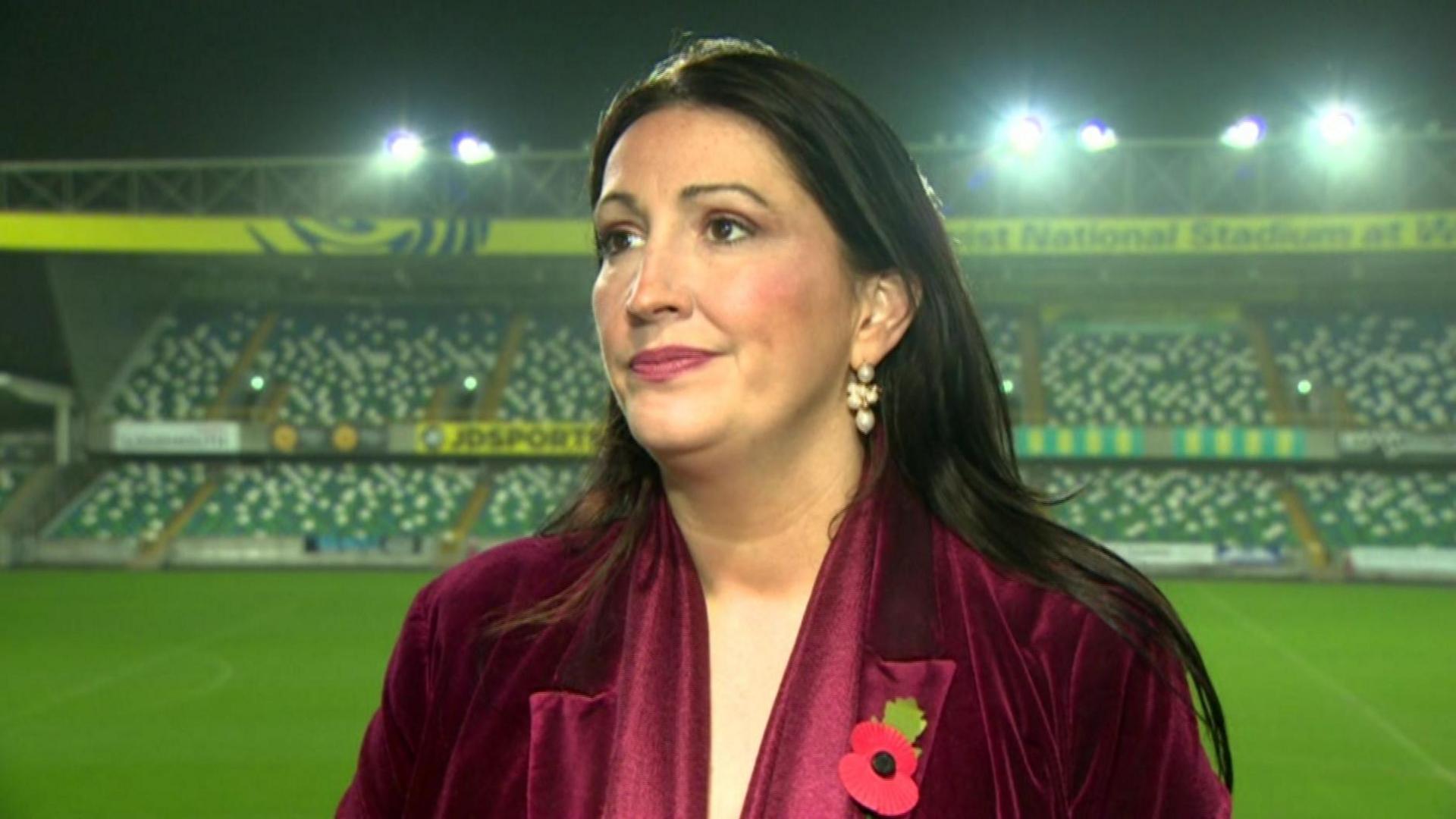Scheme tackling violence against women with young footballers

Sarah Mason is the chief executive of Women's Aid Federation NI
- Published
An initiative aimed at helping young people develop the skills and confidence to build safe and healthy relationships has started its six week programme.
'Fair Game', ran by the Irish Football Association (IFA) in collaboration with Women's Aid and the PSNI, uses the platform of sport to promote respect, equality and healthier relationships amongst young people, to tackle violence against women and girls (VAWG).
The chief executive of Women's Aid Federation NI, Sarah Mason, said the programme is about "shifting the narrative".
Fair Game was officially launched at the National Stadium at Windsor Park on Tuesday and by March, the programme will be up and running in all six council areas.
Focusing on education and prevention, the initiative hopes to challenge harmful attitudes and create safe environments for young people both on and off the pitch.
Women's Aid developed the concept for the scheme through building on the materials created by their SAY (Social Action Youth) project.
The project brought together a diverse group of young people aged between 12 and 18 engaged in Women's Aid services across Northern Ireland , who are survivors of domestic abuse.
The project provided a platform for young people to share their voices and have their say in safe and creative ways, resulting in creative tools as well as the 'Fair Game' scheme.
"What an opportunity to go in and talk to young boys 16 and under in their football club, where they feel comfortable with their coach with IFA staff delivering it who that have been trained up by Women's Aid," Ms Mason said.
"Our young people are learning about relationships in the palm of their hand with the world in a phone. We have to shift this... prevention is key."
The new programme has been funded through the Executive Office's 'Local Change Fund'.
That's something Ms Mason said has vital in order to get the initiative up and running.
"We wouldn't be here if that funding wasn't here... the IFA have jumped on this and are passionate about running this out with Women's Aid."

Chief Constable of the PSNI Jon Boutcher, said VAWG is unacceptable
Chief Constable of the PSNI Jon Boutcher, said in the last 11 months the PSNI have received about 22,000 calls in relation to violence against women and girls. About 55 a day.
"It seems to me that we are going backwards in society," he said.
"This is not just something happening in Northern Ireland, it's a societal issue and for too long we have turned a blind eye.
"This is one of a number of projects to make sure that we here in Northern Ireland do not accept this unacceptable behaviour."

The Deputy First Minister, Emma Little-Pengelly, said the attitude of men and boys needs to change
The Deputy First Minister, Emma Little-Pengelly, said she is really pleased to see the initiative which is using "sport in a really innovative way".
"It's really important that's a key part of our strategy it recognises that this isn't a problem just for women and girls to resolve," she said.
"That must mean changing attitudes aswell, within boys, within men and that's why we're working with those groups who indicated what positive relationships look like around that."
The PSNI will be delivering one of the six sessions based on their Power to Change Campaign with the young people in the programme.
The Power to Change campaign urges men and boys to help play their part in affecting a cultural and societal shift, through challenging attitudes and behaviours, providing them with the knowledge and skills to safely intervene when they see inappropriate actions or comments.
Patrick Nelson, chief executive of the IFA said the organisations collaborating on the scheme make a great team.
"There is a danger that social media and other influences on young males has led people down the wrong path in recent times," he said.
"Football is part of the remedy for this.
"Football is just 90 minutes on a pitch with 11 players against 11 but it has a massive societal impact and ending violence against women and girls is a huge issue in our society in Northern Ireland at the moment and we think football can help."